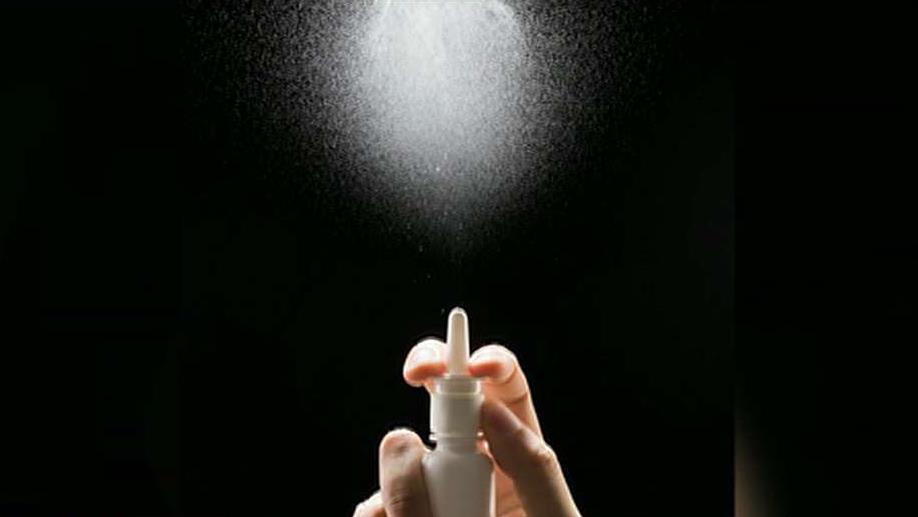J&J's ketamine-based drug drives sea change for new depression treatments
The Trump administration’s approval of Johnson & Johnson’s ketamine-based depression treatment comes as a slew of other drugmakers look to advance their own medications for the disease, driving renewed investor interest in a dormant therapeutic area, according to industry executives and experts.
But while Spravato, developed by J&J unit Janssen, is seen as a pivotal turning point in what has been a decades-long drought of new depression drugs, significant questions remains over how popular the treatment will be after the Food and Drug Administration imposed strict safety requirements for patients seeking the treatment.
The field also remains a difficult one to study and there are no assurances that any of the still experimental treatments will succeed. Botox-maker Allergan, for example, announced on Wednesday evening that its highly anticipated depression drug rapastinel failed in late-stage trials.
Still, advocates are bullish that new, safer treatments under development will soon reach patients.
“There is a lot of activity in this space, looking at drugs that work faster and work on different mechanisms completely than what has been studied before,” Sanjay Mathew, vice chair for research at Baylor College of Medicine and a member of the Anxiety and Depression Association of America, told Fox Business. “The key will be to develop equally as effective drugs without the liability.”
Of particular interest, according to VistaGen Therapeutics Inc. CEO Shawn Singh, is the data the agency used to approve Spravato. Johnson & Johnson relied on what is referred to in the industry as a randomized withdrawal study, or a trial format in which a patient first receives a drug for a specific period of time and then either stays on the existing regiment or is transferred to a placebo.
“It is definitely the case that we need more innovative clinical trial designs in order to manage down what’s often the case is a placebo effect in neuropsychiatry studies,” he said. “Not only [will] companies developing new medicines for depression and other mood related disorders benefit, but certainly patients will.”
| Ticker | Security | Last | Change | Change % |
|---|---|---|---|---|
| JNJ | JOHNSON & JOHNSON | 238.64 | -1.35 | -0.56% |
| AGN | NO DATA AVAILABLE | - | - | - |
Small biotech companies have emerged to fill the white space left by large pharmaceutical firms that largely abandoned research on new depression treatments. But with an immense market of individuals that suffer from the disease and the success of Spravato, the sector is getting renewed interest.
“You need game-changing options to really drive the business-side and Wall Street’s attention,” Singh said. “Before this approval signaling that new options are on the horizon, there really wasn’t much reason to pay attention to this space. But now there certainly is.”
VistaGen is developing its own treatment for depression that aims to address the safety concerns the FDA had in approving Spravato to allow for in-home use.
On top of the mandate that prospective users fail on at least two other medications first, the agency is requiring that patients receive the drug in a clinician’s office and are monitored for two hours after the nasal spray is administered.
As with any new treatment, the industry is also watching closely to see how much patients will ultimately pay for Spravato, which will set the bar for future drugs. While the dosage and frequency will vary by individual, most will need it twice a week for at least the first month, totaling as much as $6,785 per month for the initial phase. Depending on the response, some patients could reduce their schedule to weekly or biweekly, lowering the cost to as much as $2,540 a month.
It remains to be seen how much physicians will charge to administer the drug and monitor patients afterwards, as well as what sort of discounts will be negotiated between Johnson & Johnson and pharmacy benefit managers. In order to provide the treatment, doctors must be certified by the company and clinics must meet a strict set of guidelines.
CLICK HERE TO GET THE FOX BUSINESS APP
Given the hurdles to receive the drug, the universe of depression sufferers are unlikely to take Spravato. Still, it remains the most exciting development in the field in decades.
Johnson & Johnson “is taking on these really important challenges that other people are not taking on,” said Tonix CEO Seth Lederman, which is developing a drug for post-traumatic stress disorder in military veterans. “Getting this important drug approved was not easy and not inexpensive, so I’m not sure how this will translate down into smaller psychiatry companies.”




















